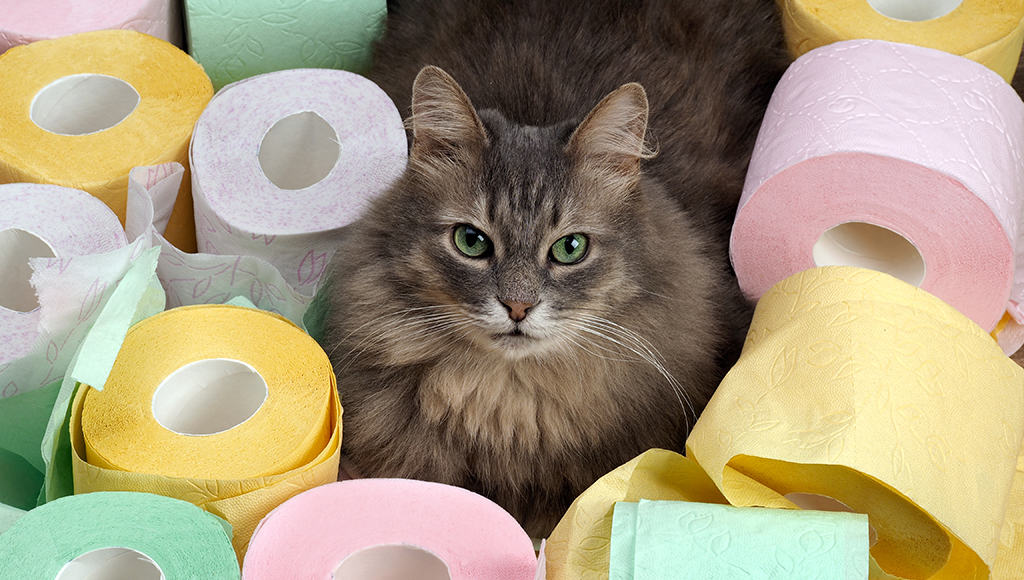Your cat peed on your bag because of marking behavior or a medical issue. It is important to identify the cause before taking corrective action.
Coming home to find your cat has peed on your bag can be frustrating. It’s important to understand that cats don’t pee outside of the litter box to spite their owners, but rather do so because of an underlying behavioral or medical issue. Marking behavior could be the cause, especially if the cat is not spayed or neutered. Alternatively, it could be due to a medical condition such as a urinary tract infection or bladder stones. It’s important to identify the cause before taking corrective action. In this article, we will explore some of the reasons why cats pee outside of their litter boxes and what you can do to prevent it from happening again.

Credit: www.reddit.com
Understanding Your Cat’S Behavior
Cats are curious creatures, and many express themselves through urine marking. Sometimes, cat pee is just a common way of showing territorial behavior. The behavior is more common in households with several cats – it is their own way of laying claim to their territory.
Other times, a cat might pee as an expression of anxiety or stress. It could even be the result of a medical issue. The truth is, there are many reasons why cats pee where they do. It is important to figure out what is making your cat feel uneasy to avoid further problems.
Make sure you are providing your cat with adequate litter boxes and take them to the vet if you think they may be experiencing a medical problem. With patience and understanding, you can help your feline friend feel more comfortable and content.
Common Reasons Why Your Cat Pees Outside Her Litter Box
Cats peeing outside of their litter box can be due to medical problems. Urinary tract infections, bladder stones, and kidney diseases can cause discomfort and result in inappropriate elimination. Environmental issues can also play a role, such as dirty litter box, too few boxes, or stress from a new environment or change in the household.
Environmental issues are manageable by providing multiple litter boxes in different locations, keeping them clean, and providing enrichment activities. If your cat has a medical condition, they need to be taken to the vet for treatment. It’s important to address the issue promptly to prevent further problems and maintain a strong bond with your furry friend.
Cat Peeing Outside of the Litter Box? A Vet Explains Why
Preventing Your Cat From Peeing On Your Bag
Cats can sometimes pee on bags or other items due to various reasons. One way to prevent this behavior is by taking your cat to the vet regularly for checkups. Offering multiple litter boxes, keeping them clean and accessible, and providing your cat with vertical spaces can also help.
Additionally, using pheromones to soothe your cat can reduce stress and prevent unwanted peeing behavior. By implementing these strategies, you can create a safe and comfortable environment for your furry friend, and decrease the chances of finding pee on your bags.
Remember that cats have their unique personalities, and it may take some time to find the perfect solution, but patience and persistence can help your cat overcome this problem.
Steps To Clean Urine Off Your Bag
Discovering cat pee on your bag can be unpleasant. However, it doesn’t imply that the bag is worthless. With patience and care, you can get rid of the smell and stains. The initial step to dealing with cat urine is to blot up as much of it as possible.
Then, you can use a solution of water and enzyme cleaner to treat the odor. Additionally, laundering the bag can help remove remaining stains and odors. Fill the washing machine with cold water and detergent, and add one cup of vinegar to the rinse cycle to neutralize any remaining scents.
Lastly, air dry the bag, and repeat any of the cleansing procedures if necessary.
Conclusion
Cats have a natural urge to mark their territory through urine. If your cat is peeing on your bag, it could be a sign of stress or anxiety. Cats may pee on things that give them a sense of security, like your bag.
It’s important to identify the root cause of the behavior and address it. Cleaning up the mess and punishing the cat won’t solve the problem. Instead, provide a comfortable and stress-free environment for your cat. Consider introducing new toys or scratching posts, and provide regular playtime and attention.
With patience and positive reinforcement, you can train your cat to use the litter box and avoid peeing on your belongings.
Frequently Asked Questions On Why Did My Cat Pee On My Bag
Why Do Cats Pee On Things?
Cats may pee on things when they’re anxious, stressed, or marking their territory. Medical issues like urinary tract infections can also cause inappropriate urination. It’s best to consult with a vet and rule out any underlying health problems.
How Do I Stop My Cat From Peeing On My Bag?
Start by thoroughly cleaning the affected area to remove any urine scent. Provide plenty of litter boxes in different locations. Ensure your cat has plenty of fresh water and a healthy diet. Spend quality time playing with your cat to reduce stress and anxiety.
Can I Punish My Cat For Peeing On My Bag?
No, punishing your cat for peeing on your bag might make them more anxious and stressed, leading to more inappropriate urination. Instead, focus on identifying the cause of the issue and addressing it accordingly. Punishing a cat will only worsen the situation.
What Kind Of Cleaning Products Should I Use?
Use an enzymatic cleaner specifically designed to break down the proteins in cat urine. These cleaners are readily available at pet stores and online. Avoid using cleaners with strong scents or harsh chemicals, as they may discourage your cat from using the litter box.
Conclusion
As you can see, your feline friend has many reasons why they pee on your bag. It could be a sign of sickness, a way to mark territory, or a reaction to changes in their environment. Understanding why your cat is acting out is crucial in finding a solution and preventing future accidents.
Remember to provide them with a clean litter box and plenty of opportunities to mark their territory. It’s also important to rule out any medical issues by visiting the vet regularly. Finally, be patient and offer positive reinforcement when they do use the litter box.
With time and effort, you can train your cat to use the appropriate spot and avoid those unpleasant surprises of finding cat pee on your bag. Keep these tips in mind, and you and your feline companion will have a happier, healthier relationship.
{ “@context”: “https://schema.org”, “@type”: “FAQPage”, “mainEntity”: [ { “@type”: “Question”, “name”: “Why do cats pee on things?”, “acceptedAnswer”: { “@type”: “Answer”, “text”: “Cats may pee on things when they’re anxious, stressed, or marking their territory. Medical issues like urinary tract infections can also cause inappropriate urination. It’s best to consult with a vet and rule out any underlying health problems.” } } , { “@type”: “Question”, “name”: “How do I stop my cat from peeing on my bag?”, “acceptedAnswer”: { “@type”: “Answer”, “text”: “Start by thoroughly cleaning the affected area to remove any urine scent. Provide plenty of litter boxes in different locations. Ensure your cat has plenty of fresh water and a healthy diet. Spend quality time playing with your cat to reduce stress and anxiety.” } } , { “@type”: “Question”, “name”: “Can I punish my cat for peeing on my bag?”, “acceptedAnswer”: { “@type”: “Answer”, “text”: “No, punishing your cat for peeing on your bag might make them more anxious and stressed, leading to more inappropriate urination. Instead, focus on identifying the cause of the issue and addressing it accordingly. Punishing a cat will only worsen the situation.” } } , { “@type”: “Question”, “name”: “What kind of cleaning products should I use?”, “acceptedAnswer”: { “@type”: “Answer”, “text”: “Use an enzymatic cleaner specifically designed to break down the proteins in cat urine. These cleaners are readily available at pet stores and online. Avoid using cleaners with strong scents or harsh chemicals, as they may discourage your cat from using the litter box.” } } ] }


